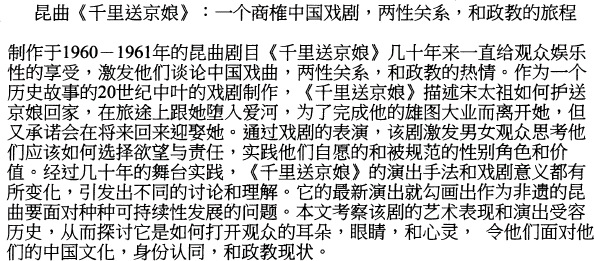Published online by Cambridge University Press: 06 December 2018
In 1960–61, the Northern Kunqu Opera Troupe of China (Beifang Kunqu Juyuan; hereafter, Beikun) created Escorting Lady Jing Home (Qianli Song Jingniang; hereafter, Escorting), a masterpiece of kunqu theatre that is still regularly performed and enthusiastically embraced by twenty-first-century audiences (Chen 2010). Dramatizing a journey that Zhao Kuangyin (926–976), the founder of the Northern Song dynasty (960–1125), allegedly took with Lady Jing, Escorting tells a substantive story that has deeply touched Chinese hearts and minds, and triggered numerous discussions, both causal and serious. The story has not only appeared on kunqu stages, but has also been performed as cartoons, TV shows, movies, and regional Chinese operas. There is even a Jingnianghu (Lake Lady Jing)—a tourist theme park built at a scenic site outside Handan in Hebei Province, China—celebrating Jing's historical/fictional trip home.
